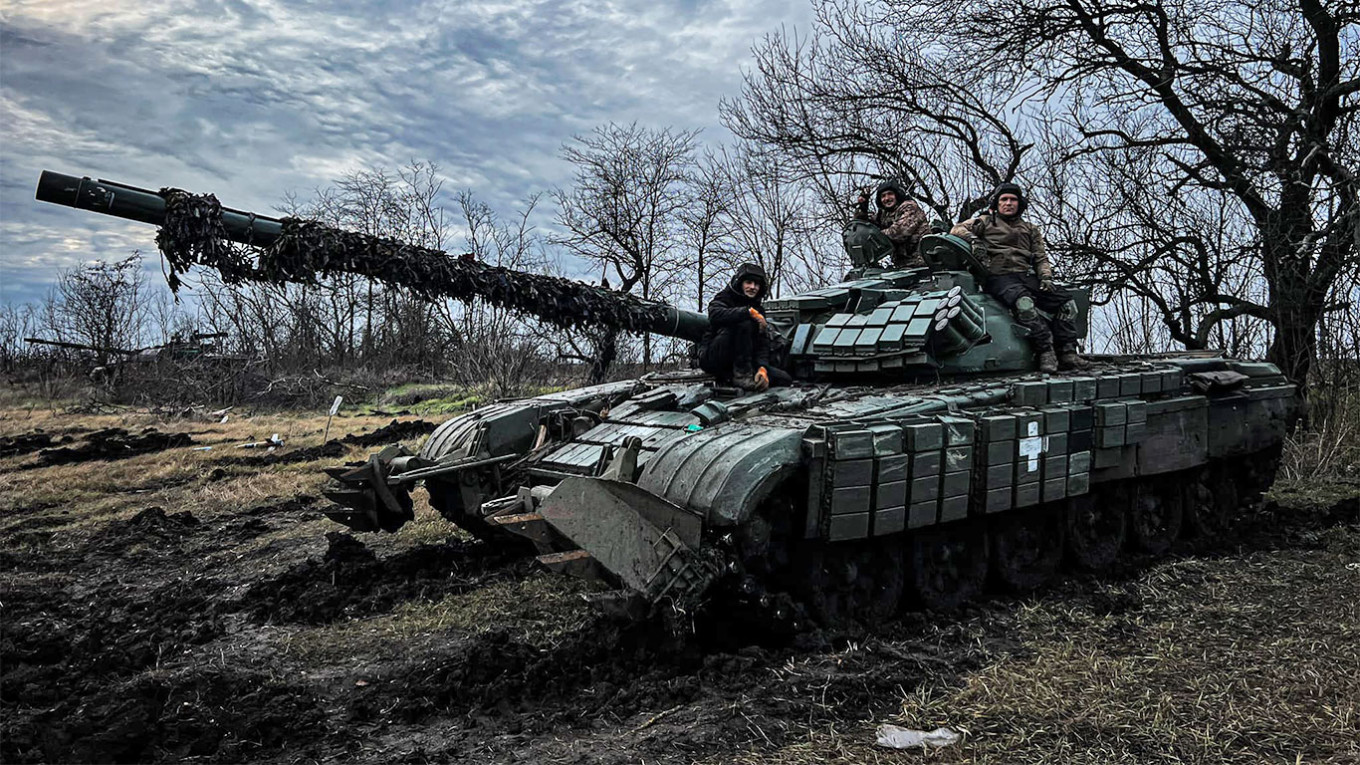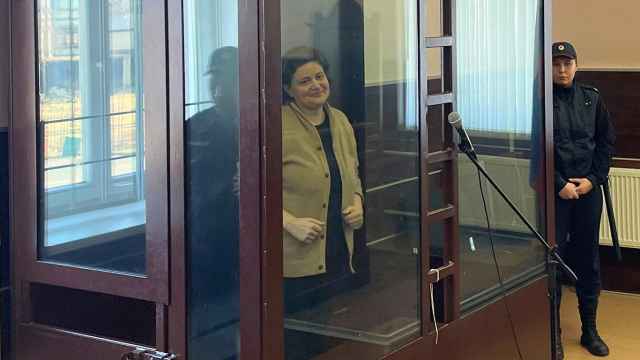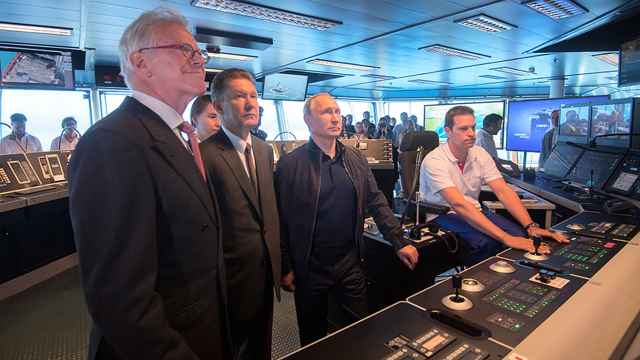This war, like any war, will end at the negotiating table. But as negotiations can only start after Ukraine’s territorial integrity has been restored, and since a change of heart in Moscow is unlikely in the short term, pushing Russia back to its borders will have to be done manu militari.
The faster Ukraine gets the means to drive Russian forces back to their own country and ensure they stay there, the better. We should all aim for a swift conclusion to the fighting. Paradoxically, for that to happen we have to make clear to Putin that we will stay the course, whatever and however long it takes. There is no point endlessly sending young Russians into the meat grinder of the Ukrainian front.
Putin will not win this war. In fact, he has already lost, but he can prolong it or create a semi-frozen conflict if Ukraine is deprived of the means to bring about its swift end. Only a just peace is lasting and only respecting Ukraine’s international borders, statehood, democracy, and right to choose the kind of country it wants to be can lead to a just peace.
This is so important because Russia's justification for its aggression lies in the denial of Ukraine’s statehood, which in turn is based on a Russian nationalist and imperialist ideology in which there is no place for a distinct Ukrainian nation or identity.
Russia denies Ukraine’s right to exist and Ukrainians their identity, defining them as what Nazi political theorist Carl Schmitt called the “total enemy.” In his warped ideology, a total enemy should not just be defeated but erased from existence. Not for what he does, but for who he is. Therein lies Russia’s justification for its aggression, countless war crimes, torture, abduction and brainwashing of children, and the removal of Ukrainian books from Ukrainian libraries.
The violence unleashed on Ukrainians for being Ukrainians is comparable to Stalin’s Red Terror, when millions of innocent people were killed for being “class enemies.” The terror worked precisely because it targeted the innocent and enforced total conformity to the state. It is now clear that Russia, having descended ever deeper into authoritarianism in the last 15 years, has now become a totalitarian state.
Anyone who resists risks falling out of a window or at least ending up in prison for 15 years. Terrorizing people into conformity puts people who are different in an ever more vulnerable position. Antisemitism has exploded, sexual minorities live in constant fear, while racism and xenophobia know no limits. This is Russia today.
It will take a very long time for Russia to recover from where it finds itself today, even once the man responsible for turning the country into a totalitarian pariah leaves the stage. The gradual poisoning of the Russian nation took Putin 20 years, the detox might take a generation and the outcome will remain unpredictable.
As well as ensuring Ukraine can attain a just and lasting peace as quickly as possible, we must also collectively support Ukraine’s efforts to transform itself into a prosperous nation, based on the rule of law, respect for human rights, and fundamental freedoms. The EU membership process can be transformative in this sense, as previous experiences have shown us. It has helped Greece, Spain, Portugal, and later the countries in Central Europe to overcome their dictatorial pasts and it can inoculate Ukraine against a dictatorial future.
History has twice in my lifetime taken a sharp turn and set us on a new path: when the Berlin Wall fell in 1989 allowing Europeans to reunite, and one year ago when Russia invaded Ukraine, forcing Europeans to defend and strengthen what they hold most dear. Under the present circumstances, Ukraine's integration will have to happen much faster than was typical in the past. However, sacrificing thoroughness on the altar of expediency would be a grave mistake: a partial or flawed integration into the EU will leave shortcomings unsolved, weakening both Ukraine and the EU.
What is needed is a Marshall plan-type response: an approach of unprecedented dimensions, combining reconstruction and economic transformation with the legal, administrative, and social transformation needed to fully function as an EU member state. This has never been done before but will have to be done now. One of our most immediate tasks, as politicians both on the EU and national level, is to prepare our citizens for this process that will transform Ukraine, but also the EU and build the economic, financial, political, and administrative structures needed to face this challenge.
The Russian regime portrays us as weak and decadent, “Gayropa” pushovers who will yield to the superior being of the ultranationalist. Putin even had political forces in Europe (and the U.S.) convinced of this, people who praised him for being “such a strong leader standing up for traditional European values.” The Ukrainian people are proving him wrong, putting his European admirers to shame.
We should all understand what is at stake. One hundred years after its first incarnations, totalitarianism has made a comeback on our continent. It needs to be swiftly contained and then unmasked for what it is so that it can be defeated and finally expunged by the Russian people.
This war is about much more than gaining or losing territory. The Ukrainian nation, a European nation, is fighting for its survival. An imperialist ideology that denies other nations’ very existence will not stop at one nation. The flames of war will burn brightly in more European nations if aggression is allowed to pay off, and autocracy will spread like gangrene. United and determined, we are so much stronger than Putin and his ilk.
Let the heroism of the Ukrainian nation inspire us to be ever more united and determined in supporting their struggle. The more we do that, the sooner the carnage will stop.
A Message from The Moscow Times:
Dear readers,
We are facing unprecedented challenges. Russia's Prosecutor General's Office has designated The Moscow Times as an "undesirable" organization, criminalizing our work and putting our staff at risk of prosecution. This follows our earlier unjust labeling as a "foreign agent."
These actions are direct attempts to silence independent journalism in Russia. The authorities claim our work "discredits the decisions of the Russian leadership." We see things differently: we strive to provide accurate, unbiased reporting on Russia.
We, the journalists of The Moscow Times, refuse to be silenced. But to continue our work, we need your help.
Your support, no matter how small, makes a world of difference. If you can, please support us monthly starting from just $2. It's quick to set up, and every contribution makes a significant impact.
By supporting The Moscow Times, you're defending open, independent journalism in the face of repression. Thank you for standing with us.
Remind me later.








